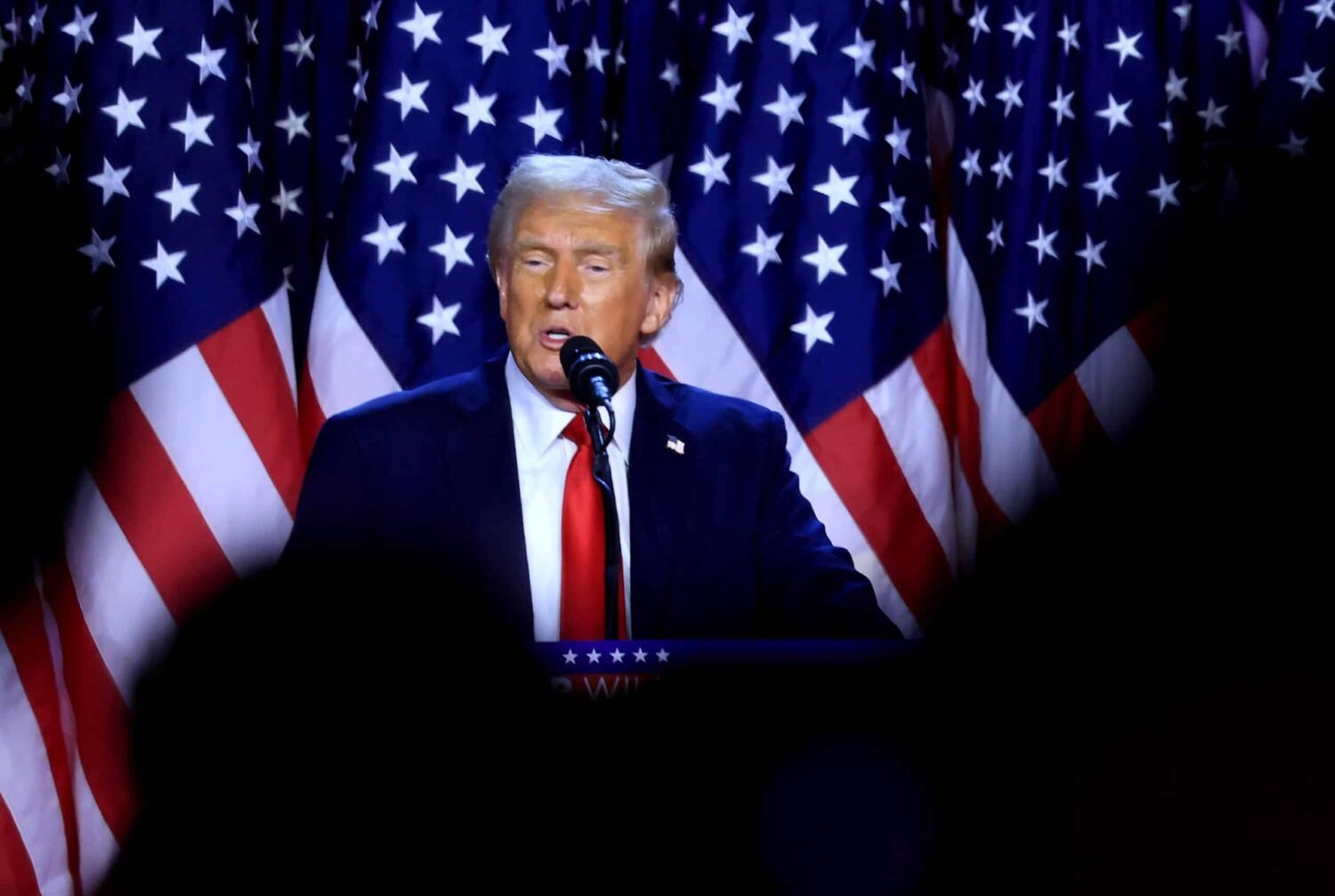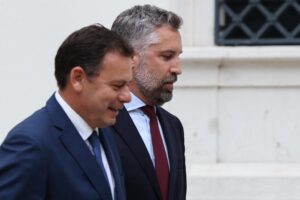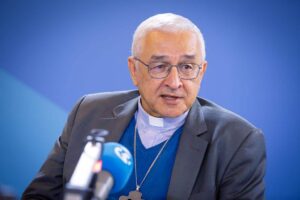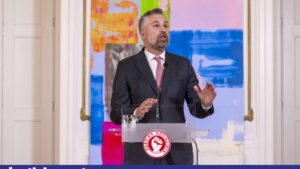“We work with any American administration” – foreign affairs minister
On the face of it, Portugal’s centre-right government is ‘welcoming’ last week’s resounding victory by Donald Trump in the US presidential elections, making all the right noises about ‘working together’ – bilaterally, multilaterally and even at NATO level.
There have been no references made to Project 2025 and how it might affect Europe/Portugal and the rest of the world.
In the US, of course, there are the reports of Americans scrambling to google places to move to (which very much include Portugal); there are the ‘national security lawyers’ advising clients to leave the country for an extended vacation when Mr Trump takes office on January 20 (to avoid ‘becoming ‘targets’), but here, no, there is no whiff of this kind of panicked reaction.
Prime minister Luís Montenegro wrote over social network ‘X’: “I look forward to working closely with you, within the spirit of the long-standing and solid relationship between Portugal and the United States”, while his minister for the presidency António Leitão Amaro insisted that America remains “a preferential partner for Portugal (…) We had, have and will have a historic alliance that is important and advantageous for both peoples. We must work together in many dimensions, bilaterally, at NATO level and in multilateral relations”.
President Marcelo Rebelo de Sousa referred to the strength of “the transatlantic relationship, democracy, human rights, the construction of sustainable peace and progress”, and foreign affairs minister Paulo Rangel has said he sees no reason for pessimism.
To be fair, the pessimism is largely on the left – but there are deep searching questions as to what will happen with Ukraine, given that Europe is so focused on supporting the country under relentless attack, and Donald Trump is expected to push a deal that will see Russia keep the territory it has seized/laid waste.
Talking in New York last Thursday – where he formally presented Portugal’s campaign for a seat as a non-permanent member of the United Nations Security Council – Paulo Rangel admitted that the new Trump administration will lead to Portugal and the European Union “making adjustments”.

“For Portugal, the US is a fundamental strategic partner. They are a partner in the field of security, defence, today with economic and cultural relations at the level of, for example, research and science, which are fundamental and of great benefit to both countries. And that’s why we work with any American administration. Whenever there is a change of American administration and, in this case, there is even a change of party (…), of course, there have to be adjustments, there have to be adaptations,” he said – adding that Portugal is already preparing the agenda for the relationship with Mr Trump’s government.
“I made multiple contacts throughout the day with various American officials and with many representatives from various countries. (…) Portugal is already preparing what will be the agenda for the next relationship with the American administration. Honestly, from that point of view, I’m not really worried. I think we have to do our homework and there will certainly be adjustments,” he repeated.
Asked about the impact that a cut in US support for Ukraine would have on Europe, Jornal Económico reports that “Paulo Rangel considered it premature to address the plans of the new Republican executive, either for that conflict or for others around the world.
“He recalled the pressure being exerted by ‘several American administrations’ for greater investment in military matters and for an equitable distribution of defence costs in the North Atlantic Treaty Organization (NATO),” says the news site, to which many may say ‘that is all very well but has nothing to do with the intentions of the administration that is coming in’.
Over the last year, Mr Trump has declared that he does not intend to maintain support for Ukraine and, a few months ago, he went as far as saying he would encourage Russia to “do whatever the hell it wants” with NATO countries that did not comply with defence spending guidelines.
“We know that this pressure, which was already great and which was not just from the Trump administration, is going to increase,” Rangel accepts.
“In the case of Portugal, our relations are excellent and we’re going to invest twice: we’re going to invest in the bilateral relationship and we’re naturally going to invest in the relationship that is made in multilateral terms, whether through NATO, with defence and security, or through the European Union,” he said.
For Paulo Rangel, a change of policy by the US administration could give the European Union ‘the incentive to take some steps’, says Jornal Económico.
“So, honestly, I don’t have a vision, let’s say … I’m not pessimistic,” he told reporters.
As for Donald Trump’s economic agenda, which advocates the application of tariffs and greater economic protectionism, Paulo Rangel also fell back on the past, stressing that during Joe Biden’s administration “the Inflation Reduction Act forced very difficult negotiations between the European Union and the US, with important economic impacts in Europe.
“So, there will certainly be geopolitical and geo-economic changes,” he countered.
Political commentators (particularly those in the US) will see this as an understatement – perhaps even suspecting Portugal hasn’t read the runes: this incoming administration will be so much more ‘powerful’ than Mr Trump’s first: Republicans not only obliterated the democrats in a way pollsters had not predicted, they regained control of the Senate; they won the popular vote, the electoral college; they have control of Congress. This IS the groundwork necessary for implementation of Project 2025, and Project 2025 promises to radically change the status quo.
With Portugal’s left emerging from its stunned silence in the aftermath of the election result to predict a “worse world” (Alexandra Leitão, PS Socialist parliamentary leader) in which “hate, violence, totalitarianism, stupidity, racism and misogyny have won”, the country’s extreme right is in jubilation.
Calling the result “great victory”, party leader André Ventura wrote over ‘X’: “Against the interests of the established system, against the traditional media, against woke globalism, America changed today and turned right. Europe must do the same!”
And on the very day that America declared Donald Trump’s victory, Germany’s social democrat coalition collapsed.
Times are definitely changing …
——————–
What is Project 2025?
Project 2025 has become known as the 2025 Presidential Transition Project. It is a political initiative published in 2023 by the Heritage Foundation (an American conservative think-tank) which aims to promote right-wing policies to reshape the federal government and consolidate executive power.
Mr Trump has repeatedly denied that he intends to enact Project 2025’s policies but, as even the BBC has pointed out, “dozens of former officials from the last Trump administration – including many who might now be called to serve in the next one – contributed to the proposals” – and there is a lot of ‘common ground’, as can be seen in the four main policy aims: restore the family as the centrepiece of American life; dismantle the administrative state; defend the nation’s sovereignty and borders; and secure God-given individual rights to live freely.
By NATASHA DONN
natasha.donn@portugalresident.com




















